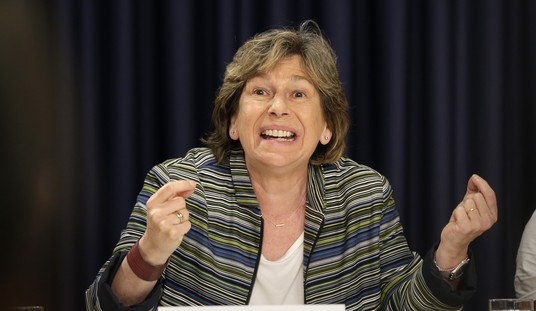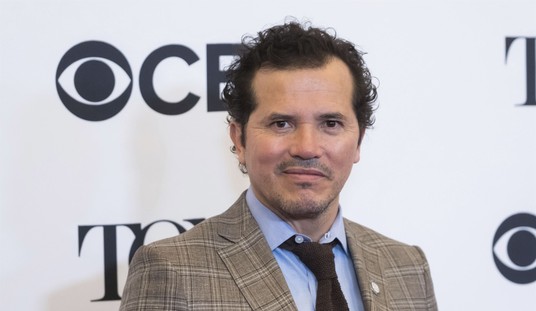If I had a nickel for every half-truth or outright lie spoken by the Democrats on the floor of the House in the hours leading up to passage of the health care reform bill, I’d be able to eat at 7-Eleven for a month. The assault on veracity was truly brutal, but what I found most alarming was not the Democrats’ attempt to build up their bill and diminish the opposition. Instead, it was the utter contempt they showed for their roles as “representatives.”
Rep. Sheila Jackson Lee of Texas said that she was “standing with America and voting for America.” Rep. John Larson of Connecticut stated: “It is at the very core of all that America stands for.” Rep. Donna Edwards of Maryland asserted: “This bill is not about partisanship, but it is about the American people.” Rep. Rosa L. DeLauro of Connecticut urged her House mates to “vote for history, vote for America today.”
When one looks beyond the torrent of populist rhetoric though, a much different picture emerges. The polling data depicts a very different portrait of the views of the American people on the Democrats’ health care reform proposals.
A CNN/Opinion Research Corporation poll (Oct. 30-Nov. 1) asked the question: “From everything you have heard or read so far, do you favor or oppose Barack Obama’s plan to reform health care?”
In their most current iterations prior to the House vote, the following polls asked a similar question: NBC News/Wall Street Journal (Oct. 22-25), ABC News/Washington Post (Oct. 15-18), CBS News/New York Times (Sep. 19-23), Associated Press /GfK (Oct. 1-5), Rasmussen Reports (Oct. 30-31), Pew Research Center (Sep. 30-Oct. 4), Quinnipiac University (Sep. 29-Oct. 5), and Ipsos/McClatchy (Oct. 29-Nov. 1).
On average these polls show that 44.8% of Americans are against this immense power grab, with 39.2% supporting it. If you drop the best and worst results (CBS News/New York Times and Pew Research Center), 47.6% of those polled are against the reform plans, with 41.3% supporting them. Using the second measure, the percentage gap between those that oppose the Democrats’ health care proposals and those that support them is greater than the margin by which Barack Obama defeated John McCain in last year’s election.
What’s more, the intensity of opposition is clearly stronger among those that oppose these reform proposals. The margin between those who were in strong opposition and those who were in strong support in the ABC News/Washington Post poll was 10 points and in the Rasmussen Reports poll the gap was 21 points. Contrast this with margins of 3 and 12, respectively, when looking at whether respondents simply favored the plans or were opposed.
Democrats may argue that given the strong opposition shown in Rasmussen’s, Ipsos McClatchy’s, and Pew Research Center’s data, they are right-of-center polls. But given that the sample also includes such well known bastions of free-market ideals like ABC News, the Washington Post, the Associated Press, CBS News, CNN, and the New York Times, I think it is safe to say that the analysis isn’t compromised due to some skewed right selection of data sources. Whether or not it is skewed left, though, is certainly open to question.
The truth is, no matter what honest analysis you do of this principal poll question dealing with the Democrats’ health care proposals, in totality you find that Americans are opposed to these plans.
When you look a little deeper into these polls, the abuse of power displayed by the House Democrats in passage of their health care reform bill becomes plainer still.
Less than 10 days prior to the HR3962 vote, the CNN/Opinion Research Corporation poll asked those being polled:
[S]everal health care bills have been passed by committees. … Which of the following do you think Congress should do?
Continue working on those bills this fall and make relatively minor changes before passing final legislation.
Continue working on those bills this fall but pass final legislation only if major changes are made.
Start working on entirely new bills that would not be ready until sometime next year.
Stop working on any bills that would change the country’s health care system?
Fully 72% said they at least wanted major changes to be made to the current legislation — legislation that has now passed the House.
The response to a similar USA Today/Gallup poll (Oct. 16 – 19) question lends further support to this 72% figure. This poll asked respondents:
Based on what you know or have read, do you think you will
support the final health care bill,
it depends on some of the decisions that have yet to be made about the bill,
or do you think you will oppose the final health care bill?
In response, 25% said they thought they would support the bill, 39% said it depends, and 33% said they thought they would oppose the final bill. Well, what do you know, the number 72 (33 + 39) appears again.
When people are given more options than simply yes or no, an entirely reasonable approach given the size and complexity of the issue, the results aren’t too pretty for the Democrats. Now the left may argue that some of those people want the legislation to be even more extreme, but even if that were true it could only soften that number slightly.
Looking at other poll questions, the NBC News/Wall Street Journal poll and the USA Today/Gallup poll asked if people felt Obama’s plan would result in the quality of their health care getting better or worse — 21% and 19%, respectively, said better, while 40% and 39% said worse.
These two polls also asked about cost. When asked if they felt their costs would go up, 47% and 49% said they would, while 13% and 22% said they wouldn’t.
When the ABC News/Washington Post poll asked respondents if they felt these Democratic proposals would strengthen or weaken the Medicare program, 43% said they felt it would be weakened and 18% felt it would be strengthened.
Both the ABC News/Washington Post poll and the Quinnipiac University poll asked people if they felt that reform would increase or decrease the federal budget deficit — 68% and 71%, respectively, felt that the deficit would be increased.
When the USA Today/Gallup poll asked people if they felt Congress should deal with reform on a gradual basis or try to pass comprehensive reform this year, 58% were in favor of the gradual approach.
The Quinnipiac University poll asked people if they felt Congress should pass reform even if only Democrats support it — 57% said they shouldn’t.
By a margin of 62% to 34% respondents to the Associated Press/GfK poll said that if President Obama and Congress were unable to win support from Republicans this year they should keep trying until they are able to make a deal with them.
Looking at the polls, it is obvious that Americans did not want that version of the Affordable Health Care for America Act to pass, and no amount of populist rhetoric or talk of “removing the donut hole” will change that fact.
Democrats can argue that polling data also shows that Americans would rather have their reforms than nothing, and there is data showing that this is at least marginally true. But this is akin to the Democrats saying to Americans, here I know you’re famished, how about some Chuck Wagon?
What did Representative Edwards say? “This is not about partisanship”? Given the magnitude of the legislation, it is hard to imagine a more partisan act.
What these Democratic members really should say in their defense is that their constituents’ views became inconsequential the moment they cast their vote or turned in their ballot. That would be a truly refreshing bit of honesty. But no, they’ll simply continue to try and ram this insane legislation down the throats of the American people, all the while decrying the Republicans as the “party of no” and claiming they are on the people’s side.









Join the conversation as a VIP Member